Poets and songsmiths attribute various powers to love: spinning Earth on its axis, acting as a miracle panacea . . . and apparently on "Bridgerton," un-whitewashing society.
It's perhaps no surprise that Shondaland's Regency-era adaptation of Julia Quinn's romance novels takes an inclusive approach, creating a far more colorful cast of characters than the source material or Jane Austen – the grand dame of the Regency subgenre – ever penned. But what sets the show apart from other color-conscious period casting is that this has been written into the fabric of the show, making it part of the alternate history or canon of "Bridgerton."
Inspired by claims that the real Queen Charlotte maybe, possibly (who can really say?) had a Black ancestor, "Bridgerton" runs with this idea and casts its Queen Charlotte (Golda Roshuevel) as mixed. In turn, she uses her influence and the indulgence of her husband King George III to raise the status of people of color in society or at least make them tolerably fashionable.
The show drops this expository tidbit during a key scene between two Black members of the nobility. Midway through the series, Lady Danbury (Adjoa Andoh) tells Simon, the Duke of Hastings (Regé-Jean Page), "We were two separate societies divided by color until a king fell in love with one of us. Love, Your Grace, conquers all."
How race colors the show
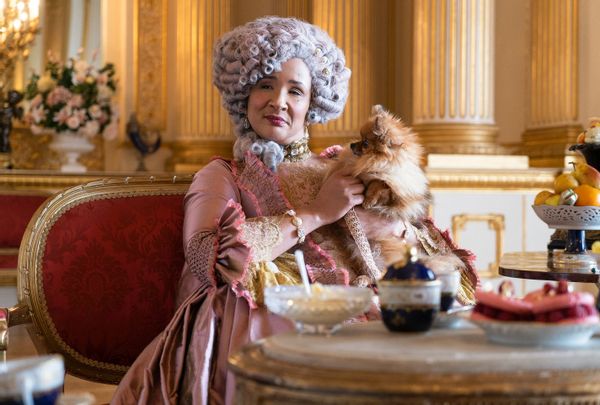
"I don't call it a colorblind cast," series creator Chris Van Dusen ("Scandal") told Salon. "I think that would imply color and race aren't considered; color and race are a part of the show's conversation. Queen Charlotte, being a queen of mixed race, was able to open up the world for us and allow us to explore stories and characters of color in a way that makes sense."
People of color have existed long in England's history – despite what period dramas often show – although not necessarily in the highest ranks or mixing with their white peers. Therefore, the storytelling device that "Bridgerton" utilizes allows for a deliberate integration without blithely ignoring a less integrated past.
In particular, this affords the show a more nuanced insight into one character's motivation this season. In the books, Simon's father is obsessed with appearances and lineage to the point that his relentless demands for a ducal heir are thought to have killed his poor wife in childbirth. And later, he's emotionally abusive with his son because of Simon's stuttering. On the show, race becomes a factor that brings an extra pressure to new nobility.
"The queen used her power to elevate other people of color in society and granted them titles and lands and dukedoms, and that's where the Hastings line, Simon's lineage was born," said Van Dusen. "Simon's father instilled in him this sense of having to be twice as good at everything to be perfect because he's not how a duke traditionally looks. We were only able to expand on Simon's backstory in that way because Simon was himself a person of color."
It's one of the smartest uses of the show's storytelling license. On the flip side, however, this inclusivity also draws attention to who's getting left out in a way that, say, Autumn de Wilde's faithfully white retelling of "Emma" does not. It's true that characters of color are the richest, most powerful people on "Bridgerton," as evidenced by the Queen, Lady Danbury, and the duke. But if you look more closely at those characters, there's a uniformity to them that Salon's TV Critic Melanie McFarland noted in her review: they're all light-skinned.
This is of course, one of the first hurdles when it comes to increasing diversity – understanding that representation isn't just a physical presence on the screen but about the quality of the representation. When one looks at who gets to be a hero, desirable, noble, and influential on "Bridgerton," they all tend to hew closer to white initially. Characters with darker skin, and those from Middle Eastern or Asian descent are left on the fringes (such as the South Asian wife of a tertiary character) or worse, made into villains. It's much the same when media starts to introduce queer or disability storylines.
Who is allowed a happy ending
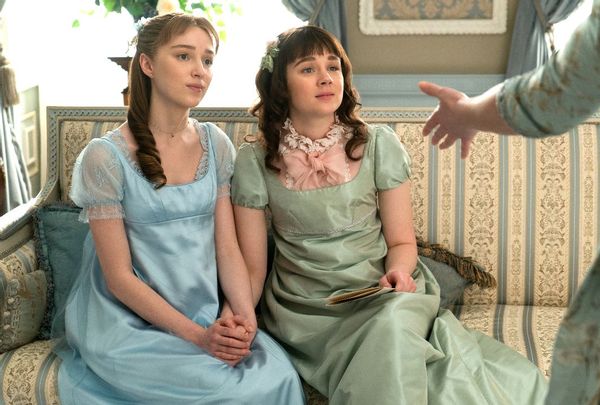
Although people of color have more autonomy on "Bridgerton," the plight of women and queer people is still relatively authentic to the period, which is to say, abysmal. This season on "Bridgerton," Daphne Bridgerton (Phoebe Dynevor), the eldest daughter of the show's eponymous clan, laments that marriage is all that she has been bred for, and yet, she dutifully falls in line with polite society's gender expectations.
When Daphne makes her debut on the marriage mart, her eldest brother, the Viscount Anthony Bridgterton (Jonathan Bailey) is the one shepherding her around the ballroom and brokering the deal for her hand – and he'll do the same for his three other sisters. His three brothers, presumably, don't need his approval or supervision.
Almost any action or behavior can lead to scandal and ruination for a gently bred lady who doesn't follow society's ridiculously strict rules of etiquette. Only marriage can save a lady from ruin, and that may not even stop the wagging tongues, depending on the circumstance.
"A lady's reputation is really hanging on by a thread," said Van Dusen. "If they make one slip, one bit of impropriety, they are ruined – whether it's a lingering glance, a passing touch, a kiss."
It's classic, patriarchal purity culture. Women don't have autonomy and are at the mercy of men for their happiness and sexual safety, a mindset that in turn encourages predatory behavior. Fortune hunter Nigel Berbrooke (Jamie Beamish) first uses physical violence and then later the threat of scandal to try and force Daphne into wedding him against her wishes. In the books, Nigel was Daphne's rather foolish yet benign suitor, whereas on the show he's far more aggressive and callous, bent on acquiring Daphne as some sort of brood mare and for her sizable dowry.
"We refer to Nigel as a Regency version of an incel," said Van Dusen, adding that the character change was made so that the show could "explore things like sexism and misogyny and the way women have been treated for centuries."
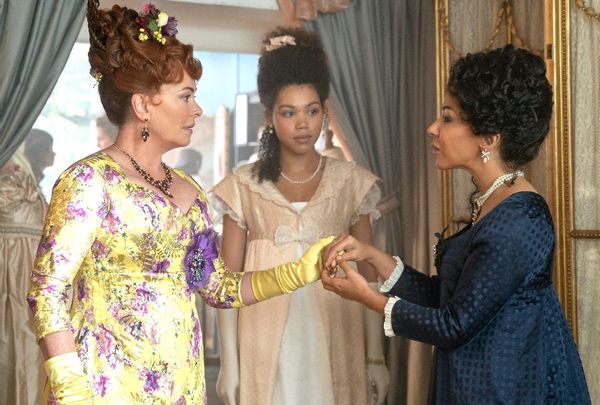
Since Anthony fails at his appointed cockblocking, it's up to the sympathetic women around Daphne to, as Van Dusen describes it, "strategize ways to assert themselves." They utilize one of the few weapons allowed women at the time: information. Daphne's mother schemes to speak to servants and learn gossip that they can use against Nigel. In a society built on reputations, they're able to leverage his secret misdeeds against him, and it's why the anonymous author of the gossip sheet Lady Whistledown (voiced by Julie Andrews) holds such power.
While Daphne is saved from Nigel, she still slips up. One impassioned kiss – witnessed by Anthony – leads to her having to wed the Duke of Hastings. The couple eventually falls in love, and while this turns out well for the upper-class Daphne, not everyone else gets the option of such a happy fate even in such a fantasy world as "Bridgerton."
Marina Thompson (Ruby Barker) is one such unfortunate, a pregnant but unmarried lady who endures physical and emotional pain for her condition, and whom the Featheringtons treat alternately as a burden and a pariah. She ends up in a loveless marriage, wed to her dead lover's brother who takes her on as a duty . . . and that's framed as a fortunate outcome. The women who are seen working, such as the modiste Madame Delacroix (Kathryn Drysdale) and opera singer Siena Rosso (Sabrina Bartlett), aren't deemed fine enough for a proper marriage, and are dependent on the men who take them as mistresses. And "Bridgerton" doesn't even deign to focus on the servants or the lower class who live outside of the sparkling social whirl of the London season.
Then there's Sir Henry Granville (Julien Ovenden), a man who befriends Benedict Bridgerton (Luke Thompson) and introduces him to an underworld of artists and orgies. Granville is also a closeted gay man, who has a wife for a beard. Behind closed doors at the sex parties he throws are the only time that he and his lover can be together. In the Regency era, homosexuality was considered illegal and was punishable by death.
Van Dusen said that he wanted Benedict's friendship with Henry to reflect "tolerance in an intolerant time." He added, "Underneath the beauty and the glamour and the decadence of this this gorgeous escapist world, we do have a running modern commentary about how in the last 200 years, everything has changed, but nothing has changed."
On "Bridgerton," such misogyny and homophobia can be addressed in a softer way, but it's clear that despite making strides in the past two centuries, modern audiences can still relate. It's damning to see such familiar inequities, and yet at the same time challenges us to question what it will take to effect real change. Or 200 years from now will our world be treated depicted in a frothy period drama with depressingly stagnant social ills?
Unmasking Lady Whistledown and Season 2
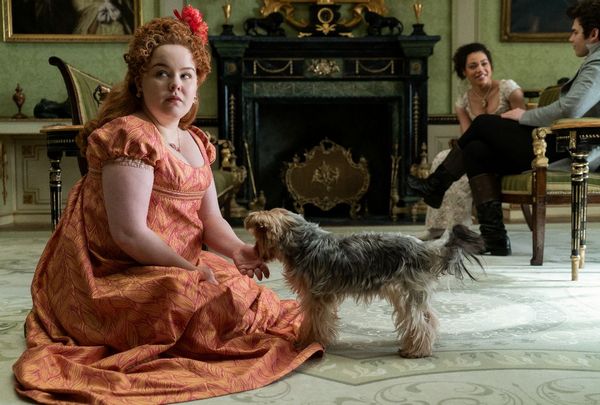
The most intriguing character on the series is a persona: the notorious and observant scandal sheet writer Lady Whistledown. Eloise Bridgerton (Claudia Jessie) notes that as a woman, Lady Whistledown isn't given the opportunities that men have but she's carved out her own niche and created her own power in the world, albeit anonymously. She's also clearly a woman of means and leisure; as one housekeeper points out, she's too busy earning her keep to write about other people's lives.
Lady Whistledown is more than just a quippy observer of London high society, but drives the action in the series. Both Eloise and Queen Charlotte are inspired to learn the author's identity, with the latter even setting a trap to catch her outside of the printer's office. In the end, however, she remains elusive . . . except to the audience who learns in the last minutes of the show that Lady Whistledown is none than Eloise's good friend and neighbor Penelope Featherington (Nicola Coughlan, of "Derry Girls" fame).
It's a bold move to reveal her true face so early, even if the show's characters are still unaware. Much like the snarky and omniscient blogger who narrated "Gossip Girl," Lady Whistledown's identity is a delicious mystery in Quinn's novels and only revealed halfway through the eight-book series (one volume dedicated to the love story for each Bridgerton sibling). Why do it now?
Although the TV series has already tipped its hand about Whistledown, Van Dusen defends the move, hoping that this sets up more intrigue (and seasons) to come.
"It was time after spending a season watching Eloise on Whistledown's trail," he said. "I think that it sets up a really interesting storyline for a hopeful second season. In success, I would love the show to continue and I would love to be able to explore stories and romances for all the Bridgerton siblings. There are eight books, so that's no secret."


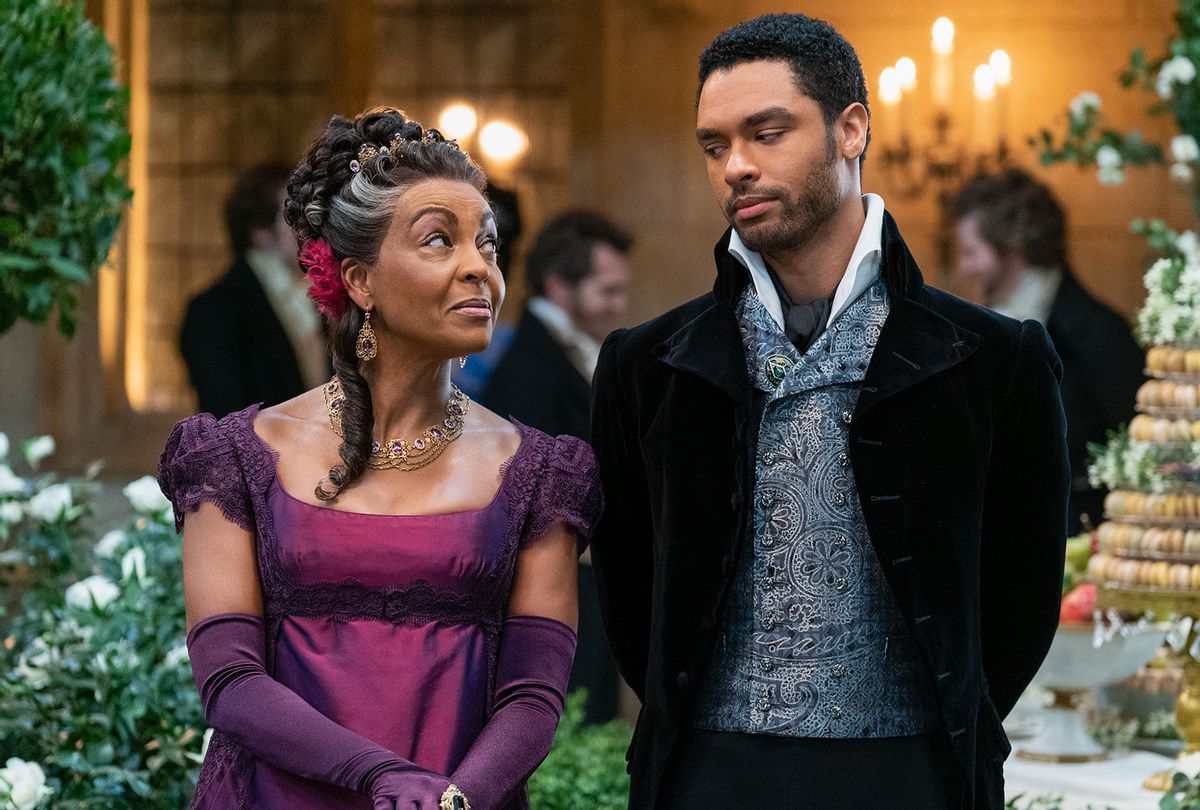
Shares